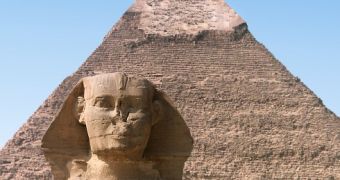Ancient Egypt formed several hundred years later than believed, archaeologists working with the University of Oxford argue in a new paper in the journal Proceedings of the Royal Society A. What's more, this ancient state did not take very long to form.
They say that, with the help of radiocarbon dating and computer models, they've managed to piece together a new timeline for the origin of the ancient Egyptian state.
Archaeologists had to rely on radiocarbon dating methods and computer models to make head and tail of the origin of Egypt due to the fact that this state formed long before ancient people started putting together verifiable historical records.
This new timeline indicates that farmers living in the area came together and set the basis for what would become the Egyptian state sometime between 3800 B.C. and 3700 B.C, about 200 – 300 years later than previously assumed, i.e. 4000 B.C.
Besides, it only took a few hundred years for these groups of farmers to form a state. By comparison, Mesopotamia took several thousand years to come into being,
“Our data cover the full trajectory of Egyptian state formation and indicate that the process occurred more rapidly than previously thought,” the researchers write in the Abstract to their paper.
“We provide a timeline for the First Dynasty of Egypt of generational-scale resolution that concurs with prevailing archaeological analysis and produce a chronometric date for the foundation of Egypt that distinguishes between historical estimates,” they add.
The University of Oxford archaeologists maintain that the civilization of ancient Egypt got its first ruler, i.e. King Aha, around between 3111 B.C. and 3045 B.C., Live Science reports.
He was followed, in order of succession, by Djer, Djet, Queen Merneith, Den, Anedjib, Semerkhet and Qa'a, the same source informs us.
Many archaeologists argue that, all things considered, ancient Egypt was the first country ever to form in the world.
Thus, although several other human settlements that developed in remote corners of the world around the same time that the ancient Egyptian state did were fairly complex, the fact remains that Egypt was far more expansive and developed.
From this standpoint, it was not all that different from modern countries, specialists maintain.

 14 DAY TRIAL //
14 DAY TRIAL //